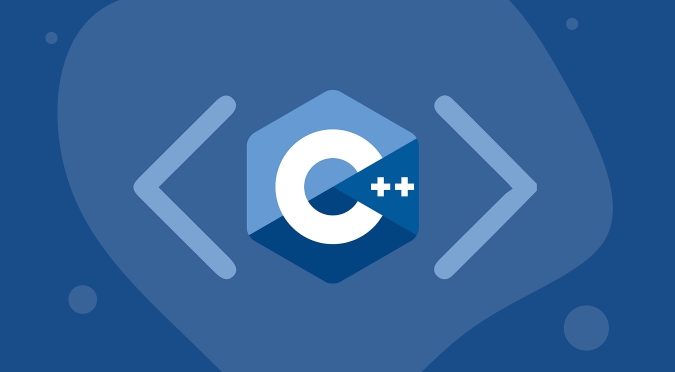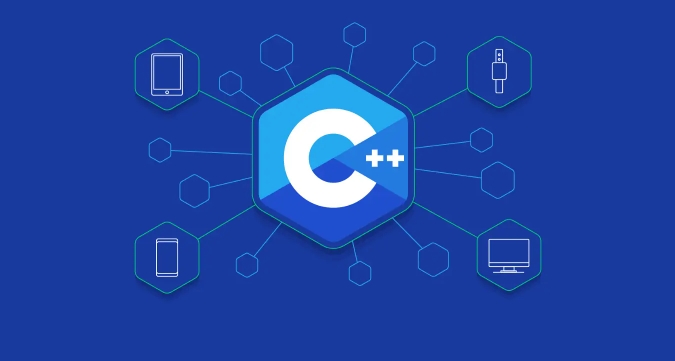The main differences between C and C are programming paradigms, standard libraries, memory management, and compatibility. 1.C is a process-oriented language that depends on functions and procedures, while C supports object-oriented programming, allowing the definition of classes and objects, and provides inheritance, polymorphism and packaging. 2.C is richer than C. It includes STL (such as vector, map and sorting algorithms) in addition to C's basic functions, which simplifies the implementation of data structures and algorithms; 3.C manually manages memory using malloc/free. In addition to new/delete, C also introduces RAII mechanisms and smart pointers (such as unique_ptr, shared_ptr) to reduce memory leakage; 4.C is designed as a superset of C, which can compile most C code, but type checks are stricter and requires the problem of name adaptation. When mixed programming, extern "C" is required to ensure compatibility.

C and C are both widely used programming languages, but they serve different purposes and have distinct characteristics. While C is a procedural language focused on performance and simplicity, C builds upon C by adding support for object-oriented programming and more advanced features.

1. Programming Paradigm
The most fundamental difference lies in the programming paradigm each language support.

- C follows a procedural programming model , which means it focuses on functions and procedures that operate on data. Programs are typically structured as a series of steps or routines.
- C , on the other hand, supports object-oriented programming (OOP) . This allows developers to create classes and objects, enabling concepts like inheritance, polymorphism, and encapsulation.
For example, in C , you can define a class like this:
class Car {
public:
void start() { cout << "Car started"; }
};In C, you'd achieve similar behavior using structs and functions, but without the built-in support for methods inside data structures.

2. Standard Library and Features
C comes with a much richer standard library compared to C.
- The C standard library provides basic functions such as input/output, string manipulation, and mathematical operations.
- The C standard library includes all of that plus additional components like the Standard Template Library (STL) — containers (like
vector,map), algorithms (sort,find), and iterators.
So while in C you might manage dynamic arrays manually using malloc and free , in C you can use std::vector which handles memory automatically.
3. Memory Management
Memory management is another key area where these two different.
- In C , you manually manage memory using functions like
malloc,calloc,realloc, andfree. - In C , while you can still do manual memory management using
newanddelete, the language also introduces RAII (Resource Acquisition Is Initialization) , which helps automate resource handling through object lives.
Additionally, C supports smart points like std::unique_ptr and std::shared_ptr , making memory leaks less likely.
4. Compilation and Compatibility
C was designed as an extension of C, so C can compile most C code , but there are some exceptions.
- Some C features (like variable-length arrays) are not part of standard C .
- C has stricter type checking. For instance, assigning a
void*pointer to another pointer type requires an explicit cast in C , whereas it's allowed implicitly in C.
Also, when mixing C and C code, you may need to use extern "C" in C to prevent name mangling and ensure compatibility.
These differences make C ideal for systems-level programming , like operating systems or embedded systems, where performance and control are critical. C , meanwhile, shines in applications that benefit from abstraction and modularity, such as game engines, large-scale software, and GUI-based programs.
Basically, if you want more control and minimal overhead, go with C. If you need better abstraction and modern language features, C is the way to go.
The above is the detailed content of What are the main differences between C and C ?. For more information, please follow other related articles on the PHP Chinese website!

Hot AI Tools

Undress AI Tool
Undress images for free

Undresser.AI Undress
AI-powered app for creating realistic nude photos

AI Clothes Remover
Online AI tool for removing clothes from photos.

Clothoff.io
AI clothes remover

Video Face Swap
Swap faces in any video effortlessly with our completely free AI face swap tool!

Hot Article

Hot Tools

Notepad++7.3.1
Easy-to-use and free code editor

SublimeText3 Chinese version
Chinese version, very easy to use

Zend Studio 13.0.1
Powerful PHP integrated development environment

Dreamweaver CS6
Visual web development tools

SublimeText3 Mac version
God-level code editing software (SublimeText3)

Hot Topics
 Using std::chrono in C
Jul 15, 2025 am 01:30 AM
Using std::chrono in C
Jul 15, 2025 am 01:30 AM
std::chrono is used in C to process time, including obtaining the current time, measuring execution time, operation time point and duration, and formatting analysis time. 1. Use std::chrono::system_clock::now() to obtain the current time, which can be converted into a readable string, but the system clock may not be monotonous; 2. Use std::chrono::steady_clock to measure the execution time to ensure monotony, and convert it into milliseconds, seconds and other units through duration_cast; 3. Time point (time_point) and duration (duration) can be interoperable, but attention should be paid to unit compatibility and clock epoch (epoch)
 What is the volatile keyword in C ?
Jul 04, 2025 am 01:09 AM
What is the volatile keyword in C ?
Jul 04, 2025 am 01:09 AM
volatile tells the compiler that the value of the variable may change at any time, preventing the compiler from optimizing access. 1. Used for hardware registers, signal handlers, or shared variables between threads (but modern C recommends std::atomic). 2. Each access is directly read and write memory instead of cached to registers. 3. It does not provide atomicity or thread safety, and only ensures that the compiler does not optimize read and write. 4. Constantly, the two are sometimes used in combination to represent read-only but externally modifyable variables. 5. It cannot replace mutexes or atomic operations, and excessive use will affect performance.
 How to get a stack trace in C ?
Jul 07, 2025 am 01:41 AM
How to get a stack trace in C ?
Jul 07, 2025 am 01:41 AM
There are mainly the following methods to obtain stack traces in C: 1. Use backtrace and backtrace_symbols functions on Linux platform. By including obtaining the call stack and printing symbol information, the -rdynamic parameter needs to be added when compiling; 2. Use CaptureStackBackTrace function on Windows platform, and you need to link DbgHelp.lib and rely on PDB file to parse the function name; 3. Use third-party libraries such as GoogleBreakpad or Boost.Stacktrace to cross-platform and simplify stack capture operations; 4. In exception handling, combine the above methods to automatically output stack information in catch blocks
 How to call Python from C ?
Jul 08, 2025 am 12:40 AM
How to call Python from C ?
Jul 08, 2025 am 12:40 AM
To call Python code in C, you must first initialize the interpreter, and then you can achieve interaction by executing strings, files, or calling specific functions. 1. Initialize the interpreter with Py_Initialize() and close it with Py_Finalize(); 2. Execute string code or PyRun_SimpleFile with PyRun_SimpleFile; 3. Import modules through PyImport_ImportModule, get the function through PyObject_GetAttrString, construct parameters of Py_BuildValue, call the function and process return
 What is function hiding in C ?
Jul 05, 2025 am 01:44 AM
What is function hiding in C ?
Jul 05, 2025 am 01:44 AM
FunctionhidinginC occurswhenaderivedclassdefinesafunctionwiththesamenameasabaseclassfunction,makingthebaseversioninaccessiblethroughthederivedclass.Thishappenswhenthebasefunctionisn’tvirtualorsignaturesdon’tmatchforoverriding,andnousingdeclarationis
 What is a POD (Plain Old Data) type in C ?
Jul 12, 2025 am 02:15 AM
What is a POD (Plain Old Data) type in C ?
Jul 12, 2025 am 02:15 AM
In C, the POD (PlainOldData) type refers to a type with a simple structure and compatible with C language data processing. It needs to meet two conditions: it has ordinary copy semantics, which can be copied by memcpy; it has a standard layout and the memory structure is predictable. Specific requirements include: all non-static members are public, no user-defined constructors or destructors, no virtual functions or base classes, and all non-static members themselves are PODs. For example structPoint{intx;inty;} is POD. Its uses include binary I/O, C interoperability, performance optimization, etc. You can check whether the type is POD through std::is_pod, but it is recommended to use std::is_trivia after C 11.
 What is a null pointer in C ?
Jul 09, 2025 am 02:38 AM
What is a null pointer in C ?
Jul 09, 2025 am 02:38 AM
AnullpointerinC isaspecialvalueindicatingthatapointerdoesnotpointtoanyvalidmemorylocation,anditisusedtosafelymanageandcheckpointersbeforedereferencing.1.BeforeC 11,0orNULLwasused,butnownullptrispreferredforclarityandtypesafety.2.Usingnullpointershe
 How to pass a function as a parameter in C ?
Jul 12, 2025 am 01:34 AM
How to pass a function as a parameter in C ?
Jul 12, 2025 am 01:34 AM
In C, there are three main ways to pass functions as parameters: using function pointers, std::function and Lambda expressions, and template generics. 1. Function pointers are the most basic method, suitable for simple scenarios or C interface compatible, but poor readability; 2. Std::function combined with Lambda expressions is a recommended method in modern C, supporting a variety of callable objects and being type-safe; 3. Template generic methods are the most flexible, suitable for library code or general logic, but may increase the compilation time and code volume. Lambdas that capture the context must be passed through std::function or template and cannot be converted directly into function pointers.






